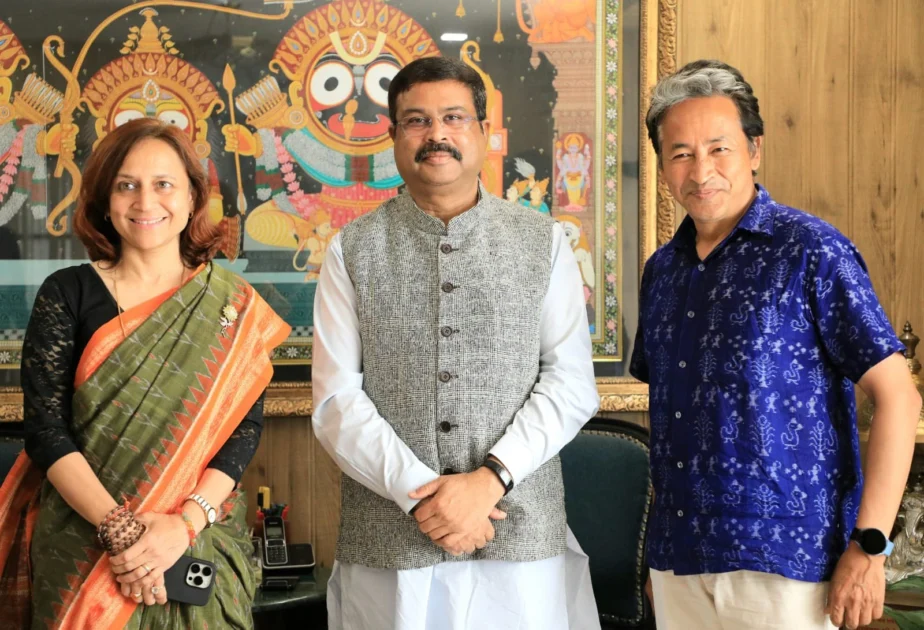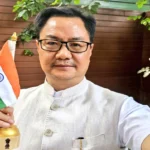Some people know him as the “real-life Phunsukh Wangdu” of the enormously popular movie 3 Idiots, others identify him as a scientist who has become a symbol for smart thinking. No matter how people know Sonam Wangchuk, his work to solve the problems of the Ladakhi people has made him an immensely respected figure all over the world.
His father was a minister in the J&K Government
Sonam was born on September 1, 1966, in Uleytokpo, a small village near Alchi in Ladakh. His childhood had a big impact on his life. His father, Sonam Wangyal, was a politician and later became a minister in the Jammu and Kashmir government.
In January 1984, Mr. Wangyal became well-known when he went on a 16-day hunger strike. He was asking for Scheduled Tribe (ST) status for the people of Ladakh. His protest was so strong that Prime Minister Indira Gandhi came to Leh and promised to fulfill the demand, ending his strike.
Growing up with a political father, Sonam learned leadership skills from a young age, which are now a big part of his personality.
He did not start school till he was 9
Sonam Wangchuk didn’t begin school until he was 9 years old because there was no proper school in his village. After his family moved to Srinagar, he finally started formal education but struggled at first due to language differences and cultural changes. These early experiences made him believe that education should be practical and suited to local needs.
He later studied Mechanical Engineering at the National Institute of Technology in Srinagar and then went on to learn Earthen Architecture at the Craterre School of Architecture in France.1
In 1988, along with a few friends, Sonam founded the Students’ Educational and Cultural Movement of Ladakh (SECMOL). The group focused on helping students learn useful life skills while also respecting local culture and the environment.
Inventing ” Ice Stupas” to store glacier water
Ladakh, a cold desert in the Himalayas, is being hit hard by climate change. Glaciers are shrinking and melting too early—before summer arrives—leaving farmers without enough water when they need it most.
To help solve this problem, Sonam Wangchuk came up with a unique idea called “Ice Stupas.” These are man-made glaciers that collect water during winter and slowly melt in summer, providing much-needed water for farming.
Another area where Wangchuk has made a big difference is eco-friendly building design. He has created solar mud houses that stay warm during Ladakh’s freezing winters without needing electricity. These buildings use sunlight to trap heat, making them both energy-saving and affordable.
Bringing High-Speed Internet to Ladakh
The region’s rocky land makes it hard to set up normal internet cables. To solve this, Wangchuk introduced LiFi, a technology that uses light to send data between mountains. It runs on solar power and brings fast internet to remote areas, helping schools, shops, and tourists.
Over the years, Wangchuk has received numerous awards, including the Rolex Award for Enterprise in 2016, the Global Award for Sustainable Architecture (2017), and the Ramon Magsaysay Award, often called Asia’s Nobel Prize, in 2018 for his dedication to creating a sustainable future.2
He is married to Gitanjali J Angmo
Sonam Wangchuk’s wife, Gitanjali J Angmo, is one of the founders and the Dean of the Himalayan Institute of Alternatives, Ladakh (HIAL). This special university focuses on improving life in mountain areas and teaches students through real-life, practical learning instead of only classroom lessons.3

He marched to Delhi to push for the rights of Ladakh
In 2024, Wangchuk took a stand for the environment by going on a 21-day climate fast to highlight Ladakh’s growing ecological problems.4
Later, he led a peaceful march with hundreds of people to New Delhi, demanding statehood for Ladakh, fair job opportunities, and protection under the Sixth Schedule of the Constitution. Though police stopped the march at Delhi’s border and briefly detained him, the movement sent a strong message. Wangchuk’s work is not just helping Ladakh—it’s truly inspiring eco-friendly and fair solutions for the whole world.
Note- His Biography will be updated here as new details emerge.
References
- Who is Sonam Wangchuk, The Indian Express newspaper story in 2018 ↩︎
- His profile on the Ramon Magsaysay Award Foundation Website ↩︎
- Himalayan Institute of Alternatives Official Website ↩︎
- Sonam Wangchuk’s Vlogs on his YouTube Channel ↩︎









